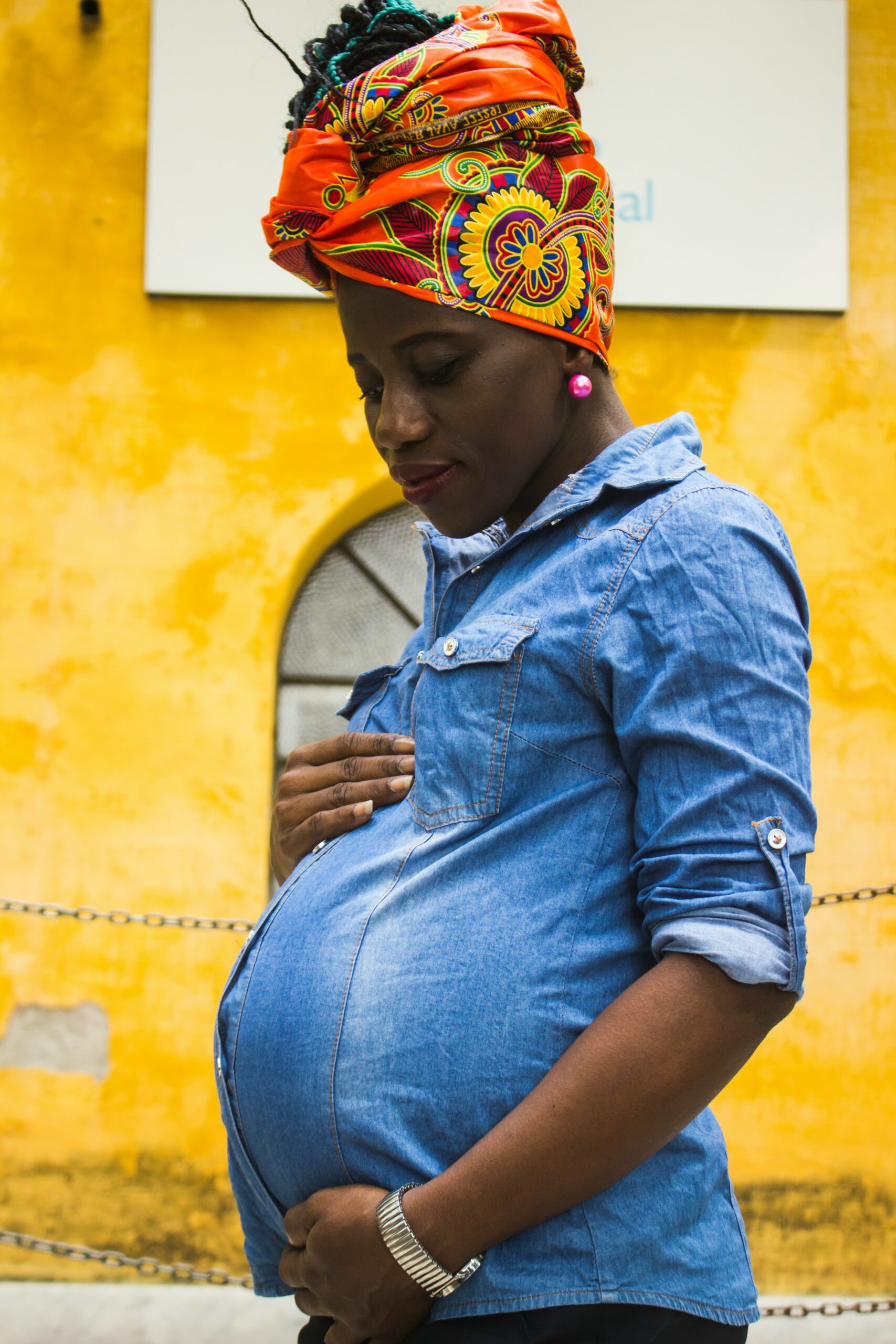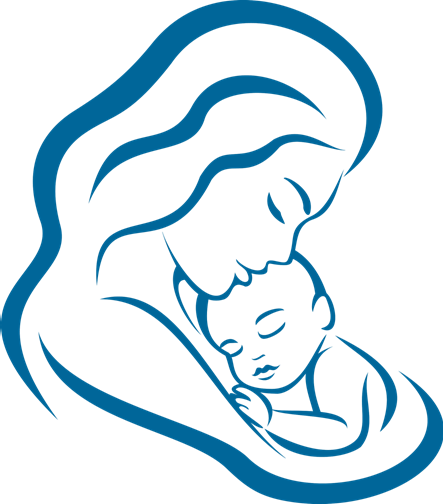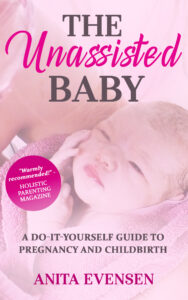What Is Unassisted Childbirth?
Unassisted childbirth happens when a mother gives birth without being attended by a medical professional. Contrary to popular belief, you don’t need a doctor, midwife, or doula to give birth. The only requirement is a pregnant woman in labor.
Giving birth unassisted doesn’t mean having a baby alone. Even if your partner, friend, or mother is present, it can still be an unassisted birth or freebirth. What makes a homebirth an unassisted birth is the absence of a medically trained professional.
Unassisted childbirth may be controversial, but it’s a growing trend in the industrial world.
In poor and developing countries, there are no other options. But even in the “civilized” world, more women are choosing to give birth this way. Either they can’t give birth at home any other way or they are very disappointed with the medical world.
No matter why you choose to give birth unassisted, you need to be allowed to make your own choices. You’re responsible for the health and well-being of your child from the time he is born until he grows up and moves out.
Why is the act of giving birth any different?
Most women who give birth unassisted are not ignorant. They make an informed decision to give birth the way they want to. They know more about the what-if scenarios than many mothers who give birth in a hospital. And they’re prepared to take action.
Giving birth is a natural act. It’s safe.
Yes, women and babies can die. But most of them don’t, because giving birth is something your body can do naturally. Even though hospitals, doctors, and midwives have to be prepared for complications, they know that most births result in healthy mothers and healthy babies
Women should be able to make this choice for themselves, and we should accept their choice, whether it’s a scheduled C-section or an unassisted childbirth.
Why Women Choose Unassisted Childbirth
I originally published this article under the title “Why a growing number of mamas love birthing unassisted” in Holistic Parenting Magazine No. 6 November-December 2014.
Unassisted childbirth is not new. Women have been birthing this way for millennia. Unassisted childbirth happens when a mother gives birth without being attended by a medical professional. While some women give birth alone, many women choose to have their partners present.
Back in the days when people lived in close-knit communities, older women would attend births. They were often relatives of the birthing women with childbirth experience, for example, mothers, aunts, or grandmas.
There are a lot of reasons for women to contemplate having an unassisted birth. Some unassisted births happen by accident: when labor happens to fast to call for help, when the midwife doesn’t make it on time, or when the baby is born en route to the hospital.

But intentional unassisted births are on the rise for several reasons:
- Midwife-attended homebirths are not legal in every state
- Giving birth at home is the best way to avoid unnecessary interventions
- Childbirth is natural and doesn’t require a medical degree
- Giving birth unassisted allows you to take control of your birth experience
- Birthing at home allows women to have a stress-free birth
- It’s easier to bond with family members without strangers
Many studies have shown and proven that homebirths are safe. Most homebirths happen under the watchful eyes of midwives, but that’s not necessarily the reason giving birth at home is safer than giving birth in a hospital. Homebirths are safer because intervening with the natural process of childbirth (whether it’s inducing labor, augmenting labor, using forceps, or scheduling a C-section) is more harmful than letting things happen naturally.
While midwives who attend homebirths and birth center births help keep childbirth close to what nature intended, they can still hinder the process. While the mother-to-be can establish an intimate bond with her midwife over the course of her pregnancy, the midwife is still essentially a stranger, especially compared with the mother’s own family members. This means the laboring woman may still feel inhibited with letting go during labor and childbirth.
Midwives still have to obey certain rules. In most states, they cannot attend births that happen before 37 weeks or after 42 (or 43) weeks of gestation. Additionally, most midwives may not feel comfortable delivering twins or even breech babies. A midwife might also not be able to attend a birth when the mother has certain health problems.
It can be frustrating for an expecting mother to be told that she may not give birth at home because of pre-existing medical conditions. While there are certainly good reasons to go to the hospital, giving birth isn’t necessarily one of them.
With due date limitations, midwives might not be flexible enough. Newest research has shown that your estimated due date can be off by as much as five weeks. Unfortunately, the medical community doesn’t allow babies to be born too early or too late. When a woman exceeds 41 weeks, most doctors will start talking about induction if not sooner.
The problem is that an induction (however natural) is still an interference with the natural process of birth. If your baby had been ready to be born, then labor would have already started.
Most midwives will try to induce labor before 42 or 43 weeks. Many expecting mothers will agree to a membrane sweep by their midwives in order to give birth away from the hospital. I have personally done that with my second child. Unfortunately, even a natural induction isn’t really what your baby intended. But the only alternative to inducing a post-term pregnancy is to give birth on your own without the midwife’s support, and most women are not ready for that.
For some women, unassisted birth is the ideal way to give birth even if they could have a midwife-attended homebirth. While you can save a lot of money by giving birth on your own, that’s never the main reason for choosing an unassisted birth.
In fact, cost should never be the reason for an unassisted birth.
Being able to birth your own baby is very empowering. The great thing is that it’s also extremely easy, as long as you can just go with the flow and stop worrying about everything.
To give birth unassisted, a woman will need to have faith in her body. Obviously, the mother-to-be is likely to conduct extensive research about giving birth at home, but the only thing that’s truly needed is the belief that your body can handle it.
Your body is perfectly capable of giving birth to your baby, just as it’s perfectly capable of nourishing your baby during your pregnancy.
But somewhere along the way, our modern culture has lost faith.
How to Give Birth Unassisted
Technically, you don’t need anything outside of yourself to give birth. At its basic, a birth only needs to involve a woman in labor and her baby. Of course, most people want to prepare for the event just a little more. Even a minimalist will try to have some blankets or towels on hand. But contrary to what popular movies have you believe, you really don’t need several buckets of hot water.
Fortunately, with access to information through your local library and the internet, it’s easy to determine which supplies you should get. Your shopping list for an unassisted homebirth will look very similar to a supply list for a midwife-attended homebirth.
For example, you will probably want to stock up on old sheets, old towels, mattress protector, pads, a mirror, a clock or watch, nursing bras, nursing pads, etc.
When you don’t hire a midwife, you’ll also be concerned with cutting the umbilical cord (unless you plan on having a Lotus birth, during which you don’t cut the cord at all), and getting a suction bulb (in case you have to suction baby’s mouth and nose), a scale, and possibly a stethoscope or Doppler. Some women also choose to have certain herbs on hand in order to stop postpartum hemorrhage if it occurs, for example, Shepherd’s purse.
With birth supplies, you can get very elaborate and purchase homebirth kits, or you can just deal with the basic items you already have. You can rent or purchase a birthing pool, or you can give birth in your bathtub. Of course, you don’t have to have a water birth at all if you don’t want to.
For your first unassisted birth, you might purchase more supplies than you’ll really need. But this phenomenon also happens to first-time parents with other baby stuff.
The hardest part about giving birth unassisted is the fact that you might need support during pregnancy and labor.
While many mothers are giving birth to second or subsequent children by the time they choose unassisted childbirth, every pregnancy, labor, and birth is different. For example, you may experience hemorrhoids with one pregnancy and bloody show without contractions in another.
The one great thing about hiring a midwife is that you’ll have someone to talk to. Ideally, she is there to reassure you as well. Fortunately, it’s easy to research almost everything online on your own. There are quite a few very active Facebook groups in which mothers support each other to have a natural or even unassisted birth. And if all else fails, you can always choose to make a prenatal appointment with a doctor or midwife in your area.
Giving birth unassisted doesn’t necessarily require you to go without prenatal care altogether. Depending on your situation, you may decide to go to an OB/GYN or midwife for regular prenatal visits. Some women decide to give birth at home without telling their providers, others are upfront about it. However, some providers may not keep you as a patient if you don’t plan on showing up for the birth.
You can also do your own prenatal care at home. Nowadays, you can purchase anything you need online, such as urine test strips and a stethoscope. You can easily track your weight gain, and you can even measure the size of your uterus. Of course, you don’t have to do any of that.
Alternatively, you can just have faith in the process. After all, your body knows how to grow a baby even if you don’t. Prenatal care is actually pretty similar to other health checkups. It’s designed to spot problems (although it doesn’t do that reliably), but it can’t really change the outcome.
Healthy mothers are more likely to have healthy babies. Therefore, taking care of yourself is the best prenatal care you can have.
According to John A. Haugen, “You do not need to do any screening or diagnostic testing. The benefits of any prenatal testing include reassurance, or in the event of a problem, preparation, optimal medical management, or termination of the pregnancy. The risks include additional worrying if you have abnormal screening tests but don’t do diagnostic testing and the miscarriage risks associated with diagnostic testing. This risk of not doing any testing is not knowing about a birth defect, or a higher risk of one, before delivery.”

The Challenges for Freebirthers
Freebirthers, women who give birth unassisted, have quite a few challenges to overcome. First, they may face resistance from their significant others. Second, their family may not be supportive, either. Another problem is they might encounter very unsupportive doctors if they end up in the hospital after all. And finally, it can be a challenge to get a birth certificate for their newborn.
You may choose to give birth unassisted without any support at all. However, most women need the moral support of at least one person. The closest person tends to be the significant other. Depending on his beliefs about the medical system, it might be challenging to get him to embrace an unassisted homebirth. Fortunately, there is a lot of research out there that shows the dangers of medical interventions without playing up the perceived risks of childbirth.
Some women who choose to give birth unassisted run into very unhelpful extended family members along the way. Some people might even threaten to call child services. To them, childbirth is scary and dangerous. But while they may think they’re acting in your best interest by trying to force you into receiving medical care, they’re not. Therefore, many women choose to leave everyone in the dark until after the fact because it’s the easiest way to avoid this type of situation.
A woman who gives birth unassisted usually does so to keep her child and herself safe from harm. However, sometimes there are legitimate complications in childbirth (however unlikely) that truly require medical intervention. It’s important to recognize the signs and act accordingly. After all, no matter how much you may desire an unassisted birth, you certainly don’t want to put your health or the health of your baby at risk for it.
If a woman ends up in the hospital after having planned an unassisted birth, she may run into unsupportive caregivers. While you can certainly find a midwife or a doctor who will support a natural birth, you might not get the kind of person you want in an emergency. In that case, it’s important to be prepared to stand your ground when it matters to you.
Ideally, the laboring woman will have a support partner with her who can help with that.
Every state has different laws about documenting a birth. It might be challenging to get a birth certificate for your child after an unassisted birth, but it’s your legal right. In order to report the birth, you will probably need to go to the Vital Records department in your county (the same place where you order a birth certificate).
It might be a good idea to find out what kind of proof you will need. Most likely, you will need to provide proof of pregnancy and proof of a live birth, which could be in the form of prenatal records, medical records, baptism, or a signed affidavit from someone other than the parents.
Unassisted childbirth certainly seems to be on the rise. It’s definitely a small movement (kind of like unschooling), but it’s gaining popularity. In the end, it all comes down to the fact that people realize having a medical degree doesn’t make you omnipotent. Mothers and fathers are making more educated choices about pregnancy, childbirth, and parenting in general. The more you research, the more you will realize you are the expert on your body and your child.
End of Article
Why Giving Birth Your Way Is So Important
While some women give birth more than once, it still doesn’t happen very often in a woman’s lifetime. Even if you end up having 12 children, childbirth is still a special event. And I would venture a guess that you’ll still remember every birth. Maybe you won’t remember all the details of 12 different births, but you’ll remember the way you felt about each of them. This is certainly true when you give birth less than a handful of times.
The Event Stays with You Forever
It’s really important to make your childbirth experiences count because they stay with you forever. Women who have horrible childbirth experiences might need years to come to peace with them. And in the meantime, they end up sharing their story with a lot of other women. While it’s natural to want to tell your story, it’s not always helpful for the expecting mother to listen to negative or scary childbirth stories.
While you can change your parenting style along the way, you really can’t undo your childbirth experiences. Many mothers end up choosing a different type of birth with their second or subsequent child, because their hospital birth was not what they really wanted. Having a peaceful birth can go a long way to healing you from previous birth experiences.
There Are Consequences for Your Decisions
Whether you end up choosing a midwife, a doctor, or your partner to be your birth attendant, your choices will affect the outcome. Similarly, if you opt for a repeat cesarean or an epidural, these decisions come with consequences. The biggest decision you have to make is the one about your caregiver.
If you end up going with a doctor or a midwife, then there will probably be a point where they’re in control of the process. Choosing a care provider who is on board with what you want is going to increase the chances of getting your perfect birth experience. This means you should sound out your doctor or midwife about induction, episiotomy, pain relief, forceps, vacuum, C-section, delayed clamping, and other topics that are dear to you.
If your provider doesn’t feel like answering your questions, then he is obviously not a good choice. If your provider is evasive and not a proponent of natural childbirth, then you might also want to keep looking.
A good childbirth attendant will have faith in your body and in the birthing process. If interventions become necessary, they will use them sparingly and only when they’re truly needed. Their job is to help you give birth.
You Won’t Have to Live with Regrets
If you can find the provider you want or decide to give birth on your own, you don’t have to live with regrets later. Wanting to give birth naturally is a great goal, but it’s really hard to achieve this goal without being proactive about it. Therefore, you need to educate yourself about childbirth and what happens when. If your provider wants to intervene, you still have the right to say no. It’s your body and your baby. And in most cases, interventions are not performed because they are really needed. Instead, there are too many of them.

Is Unassisted Childbirth the Right Choice for You?
Every woman should be allowed to choose how she wants to give birth. The good news is that you have lots of options available to you. The bad news is not every option will be the right choice for every woman. You can give birth at the hospital, at a birth center, at home, or in a cornfield. But besides the place of birth, you will also need to choose your birth attendants. Do you want to give birth with a doctor, midwife, doula, or your spouse present? Of course, you can choose more than one attendant or none.
Are Women Birthing Alone?
Giving birth unassisted means giving birth without a medically trained professional nearby. It’s still considered an unassisted childbirth if your husband and your kids are present. That means you really don’t have to give birth alone at all. However, in the medical sense, you’ll be doing this on your own.
Unassisted childbirth is not the right choice for everyone. In fact, it’s probably only the right choice for a small percentage of women. Humans are very social beings. It’s natural to crave company and reassurance during an emotional event like childbirth. And there is absolutely nothing wrong with that.
Who Chooses Unassisted Childbirth?
Most women who choose to give birth unassisted have been disappointed by the medical establishment. This means they probably had a first birth that was not as satisfying as they had hoped it would be. Whether they received an epidural or whether they just disliked the lack of privacy in the hospital, these women usually have several reasons to give birth on their own.
Women may also choose unassisted childbirth when there is no other natural alternative. For example, some doctors will refuse to allow woman to have a natural birth after they have had a C-section. Some midwives aren’t able to keep certain clients if they are high risk. In some states, midwives aren’t allowed to attend homebirths.
This leaves many women with only two options: giving birth at the hospital in a highly regulated setting or doing it on their own.
How to Make the Decision
Choosing how to give birth is something you shouldn’t take lightly. After all, you will always remember that event. In order to make the decision, you need to educate yourself. First, learn about natural childbirth. If you’ve given birth before, then you may have a better idea of what to expect. But next, you will need to learn things that other women never even think about. For example, how and when do you cut the cord?
Learning as much as you can about the process will help you no matter which type of birth you end up having. But it’s very important to be prepared if you decide to have an unassisted birth. Once you make the decision, you may not want to tell anyone but your closest friends and family members. You should also know that you can change your mind at any point in time. And if complications arise you can’t deal with on your own, you definitely want to seek medical help.
Why Don’t You Just Get a Midwife?
When you talk to other people about giving birth unassisted, they may nod understandingly, but in reality, they are thinking:
“Why don’t you just get a midwife?”
This question can be very difficult to answer. There are a lot of reasons women choose to give birth at home unassisted without the help of a midwife.
- Midwife-attended homebirths are illegal in some states.
- It’s difficult to find a midwife who is truly supportive.
- Some women are not good homebirth candidates, according to local midwives.
- You don’t want anyone telling you when to push or what to do, not even a midwife.
- You want to share this moment only with people you love, not with a midwife you barely know.
- If something goes wrong, you have the same means at your disposal as the midwife, and you can dial 911 just as easily.
- Midwives may not be allowed to attend your birth if you go past your due date too much, requiring you to get induced at the hospital.
- For an uncomplicated, natural birth, it’s not necessary to have a medically trained attendant at your birth.
When medical care is readily available for most people, why would anyone choose to give birth unassisted over birthing with a midwife? I think many people can understand choosing a homebirth with a midwife instead of a hospital birth. After all, most hospital procedures intervene with the natural process of childbirth. However, midwives who come to your home are a lot more supportive of a natural birth. So why not hire a midwife instead of going it alone?
Birthing Women Need Privacy
The reason labors stall in the hospital is that women are nervous and afraid. The bright lights and unfamiliar surroundings can slow down or stop labor altogether. That’s one reason you shouldn’t show up at the hospital until labor is well underway—it’s less likely labor will slow down or stop. But if labor doesn’t progress in the hospital, then a doctor might feel the need to speed it up.
Some women really relish the company of a caring midwife at their homebirth. A midwife can reassure and offer comfort even if the father of the baby cannot. However, for women who don’t enjoy being watched or touched, even having a midwife there might be too much for them. You can still try to find a midwife who will wait in another room while you labor alone. Alternatively, an unassisted birth will leave you in charge.

Birthing Women Don’t Need to Be Told What to Do
Giving birth is more about following your instincts than following orders. An attending midwife may leave you alone, but most of them will still want to check your dilation and tell you when to push. The thing about giving birth naturally is that you don’t need anyone to tell you what to do. Your body is giving all the signals you need to give birth.
If you feel like getting up and moving around, do that. If you have the urge to push, then you should do that. For most “civilized” people, it can be really difficult to let go and just tune in with your body, but that’s what giving birth is all about. Personally, I have found that a midwife can also detract from the labor and the baby itself. You can focus on what your midwife wants you to do without really paying attention to what your body is telling you.
Birth Attendants Can Outshine Fathers
When you have people with childbirth experience attending your birth, whether they are doulas or midwives, they tend to “outshine” your partner. You’re much more likely to look to them for direction and comfort than to your partner. If the father of the baby was the only one there with you, then he’d have the chance to step up and take over that role.
From my personal experience, I can say that I preferred my unassisted birth over the one with a midwife, because with the latter, I hardly noticed my husband’s presence. With just him being there unobtrusively at my unassisted birth, I was better able to focus on the birth itself and my husband, not a midwife who I would never see again.
Childbirth Is Expensive
I would never use money as the sole reason to give birth unassisted. If that’s your only reason for doing it alone, then you probably didn’t make the right decision. That being said, giving birth can be really expensive. Hiring a midwife costs several thousand dollars. Going to the hospital to give birth can cost as much as a new car. For some women, insurance won’t cover the birth with a midwife. And in some states, a homebirth with a midwife is illegal.
There can be a lot of obstacles to giving birth the way you want to, even though there shouldn’t be. One major advantage of an unassisted birth is that it’s the cheapest option available to you and it’s perfectly legal. While you may need to purchase a few supplies, they don’t cost much.
Why You May Trust Yourself More than Your Midwife or Doctor
Doctors and midwives can make mistakes and put you or your baby at risk. That’s why it doesn’t make sense to solely rely on others during birth. Whenever I talk to people about unassisted childbirth, many of them immediately think that it’s risky. Of course, giving birth at home without medical attendants isn’t the cultural norm.
Hiring a midwife or doctor doesn’t negate all risks associated with giving birth.
After all, no one is infallible, not even a doctor or a midwife. Doctors and midwives can’t prevent or treat every problem that might occur. Finally, medical professionals often create additional problems by interfering with birth. But whether you decide to give birth unassisted or hire a medically trained attendant, the bottom line is that knowledge is power.
Medical Knowledge
Midwives and doctors have intensive knowledge about the process of childbirth. Depending on their background and continuing education requirements, they have probably been studying pregnancy and childbirth for years. The more natural births they have observed, the more likely it is that they will know what to do (if anything).
But while some medical knowledge comes in handy, it might make them more prone to view birth as riskier than it actually is. And while I don’t want to be simplistic, you don’t need to study mountains of textbooks in order to give birth to your baby.
I encourage you to do your research and look up some basic information, for example, how to do a newborn exam and when you should seek medical assistance. But beyond that, knowledge alone won’t allow you to focus on your instincts. After all, your body knows what it needs to do in order to give birth to your baby.
The Voice of Experience
I’m not arguing that an experienced midwife or doctor can help you have a great natural birth experience. Unfortunately, it’s difficult to find medical providers who trust birth and allow your body to do its job. It’s more common that they interfere with the process, whether it’s by inducing labor, checking your cervix, telling you when to push, or using forceps.
If you want to have a medical provider at your birth, you really have to do your research. In many cases, medical professional do more harm than good because they try to make things happen instead of letting labor progress on its own.
Listen to Your Instincts
Your primal instincts may be more useful than medical knowledge and experience combined for giving birth. Every labor and birth is just slightly different. While doctors and midwives can come up with standards, such as telling you it’s time to push when you have dilated to 10 cm, these standards are often counterproductive.
For example, pushing too early or too much can increase your risk of tearing.
Listening to your instincts may encourage you to move to a different position in order to help your baby descend. If your labor stalls, listening to your instincts allows you to rest. Listening to your instincts will also ensure that you drink and eat enough. But if you’re paying attention to your caregiver, then you’re probably not tuning in to what your body is telling you.
You Can’t Have It All
It’s difficult to follow your instincts if there are medical professionals present. The relationship between a laboring woman and doctor or midwife is usually not deep. You may automatically look for guidance because you assume that the midwife or doctor knows what they’re doing. However, paying attention to what someone else is doing doesn’t really allow you to listen to your body.
For some women, the presence of a partner can be similarly distracting. But a medical professional you don’t know very well is definitely going to have this effect, even if you give birth in the comfort of your own home. We also want to please other people even while we give birth, for example, by not moaning or screaming when we feel like it.
It’s really important to feel completely at ease with yourself during labor and birth.
I know I chose to give birth unassisted because I don’t think a doctor with a medical degree can help me give birth naturally and comfortably. They would feel compelled to intervene (at the very least, induce my pregnancy before I go past 43 weeks). But birth doesn’t have to be managed by a medical professional. It just happens on its own.
Are You Interested in Unassisted Childbirth?
The Unassisted Baby is THE comprehensive guide every woman needs to give birth on her own. It includes information about prenatal care, pregnancy concerns, signs of labor, stages of labor and birth, potential complications, and even a guide for fathers. Get your copy of this invaluable resource today!

